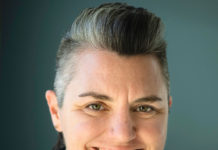Years ago, my father told me, “Son, there are many things you can do with your life to earn a living. But the trick to a good job, one that you are happy with, is doing something that you find interesting and personally rewarding. If you do that and stick with it, you might not make millions, but you will live a happy and fulfilling life.”
I often encounter people with well-paying jobs who work their entire lives doing things that make them miserable. The problem seems to be that many in our society equate success and fulfillment with amassing big sums of money as they seek an unattainable El Dorado equated with success.
I’ve had many jobs that provided me larger incomes than I have now. But I wasn’t happy. Alliances with friends deteriorated, relationships with family members became at risk, and I was miserable.
Isn’t it interesting that the word “miserable” comes from the word “miser,” which means “a person who lives in wretched circumstances in order to save and hoard money”? It seems our ancestors understood the problems encountered when we do things strictly for money.
After stumbling around awhile, the lesson my father gave me finally sank in. I left a management position in a large firm and went to work in my hobby. Even though I make substantially less money, I am happier and blessed by God that I am amply paid for things I normally do for free as my hobby.
Today, I see many people working the way I once worked. And they, too, are miserable, have troubles in life and have become slaves to their jobs. Many turn to government and society for relief from this dilemma. But if you ask 10 people what might solve that dilemma, you will likely get 10 different answers.
This weekend, I indulged in my hobby by attending a QRP amateur (ham) radio conference, and it was immensely rewarding.
QRP means “low power,” or a transmit power of 10 watts or less, but at that power level, it’s possible to communicate anywhere on the globe using a 9-volt battery.
You are likely aware of a tsunami that occurred in 2004. But you might not know the people affected there were without electricity or emergency communications for weeks.
A ham named Farhan, in a couple of days using a calculator and basic understanding of radio, built a transceiver from hardware and junk electronics parts. He then used that improvised transceiver to provide emergency communications for his community until normal emergency communications were restored. However, he would have failed if not for a worldwide society of independent ham radio operators receiving those calls for assistance and acting on them.
Another ham is William Gerrey. Bill possesses an electronics engineering degree from California State Polytechnic University and is credited with a list of truly remarkable innovations and inventions.
What makes Bill and his accomplishment most interesting is that he has been blind since birth. Blindness, however, has not hampered him living a fulfilling and inspiring life.
People like Bill use their understanding of technical things like radio to invent or remanufacture things we sighted people take for granted. Working for Smith-Kettlewell Eye Research Institute and focusing his attention on rehabilitation engineering for blindness and low vision, Bill creates things like a carpenter’s level that blind people can use, or barometers that indicate changes in the weather. Even simple stud finders we sighted people take for granted don’t escape his notice.
Ever wonder how a blind person might measure something to the accuracy of 1/32nd of an inch? Bill solved the problem using standard screw stock, a couple of nuts and some filing on the stock. The result is a ruler that blind people can use to measure anything to the accuracy of 1/32nd of an inch. There are many sighted people who can’t accomplish that feat with repeated accuracy. Bill does it with ease.
So, what’s the point of this column? Just because you personally don’t think you can attain happiness and a fulfilling purpose in life, it doesn’t mean that you can’t.
If a blind man can become a successful electronics engineer who graduated from Cal Poly and a ham living in a Third World nation can assist people by creating an emergency radio from hardware and scrap parts, what fulfillment might we achieve if we concentrated more on the things we do best, instead of only focusing on the monetary reward?
In short, the only thing really preventing us from attaining fulfilling, successful lives is ourselves.
• Dave Hardesty works as a satellite communications engineer for Lockheed Martin.












